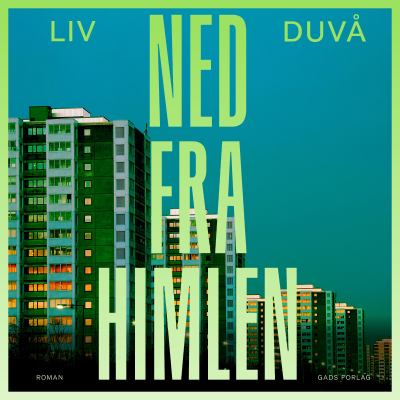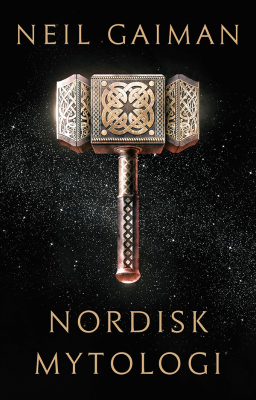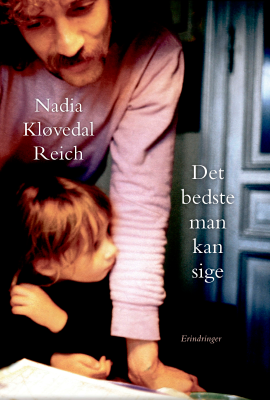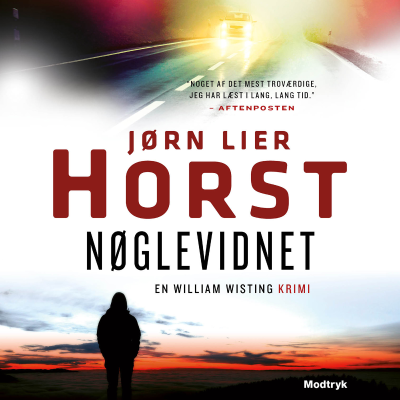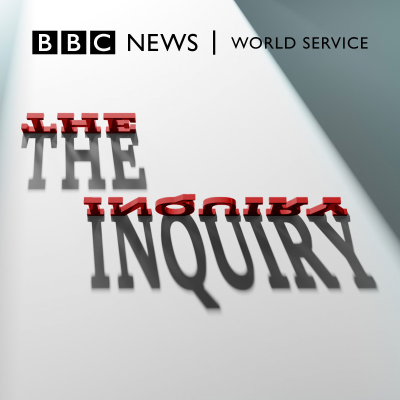
The Inquiry
Podcast af BBC World Service
The Inquiry gets beyond the headlines to explore the trends, forces and ideas shaping the world.
Prøv gratis i 7 dage
99,00 kr. / måned efter prøveperiode.Ingen binding.
Alle episoder
553 episoderMore and more of the tasks we perform in our daily lives are been guided by artificial intelligence, from searching the internet for answers to relying on satellite navigation in our cars. But studies recently released suggest that our use of AI is having a negative impact on our ability to make informed judgements and decisions. In one recent study from MiT’s Media Lab, a group of people were asked to write several essays. Some of them used AI, others didn’t. Those who used generative AI reportedly became lazier with each subsequent essay. This cognitive offloading, allowing AI to take over from our brains might be less taxing, but there are concerns that if we come to rely on AI, we are in danger of replacing our own critical thinking for a technology that might not always come up with the right answer. However, there are those who argue that AI can be beneficial in helping our cognitive function, that it can be employed to take on the more mundane, repetitive tasks, freeing up headspace to allow us to become more productive. Software education platforms are just one example where AI is been employed to assist teachers in things like knowledge checks and grading, with the claim that it allows them time for more valuable interaction with their students. So is it possible to find a balance where we can we can rely on AI but not to the extent were we lose our mental agility. On this week’s Inquiry, we’re asking "Is AI eroding our critical thinking?’ Contributors: Dr. Daniel Willingham, Professor of Psychology, University of Virginia, USA Dr. Michael Gerlich, Professor of Management, SBS Swiss Business School, Zurich, Switzerland Yvonne Soh, Co-founder and CEO, Noodle Factory, Singapore Sana Khareghani, Professor of Practice in AI, AI Policy Lead for Responsible AI UK Programme, King’s College, London Presenter: Tanya Beckett Producer: Jill Collins Researcher: Maeve Schaffer Editor: Tara McDermott Technical Producer: Craig Boardman Production Co-ordinator: Tammy Snow Production Management Assistant: Liam Morrey
Brazil’s Zebu cattle, or “supercows” are bred for size, strength, and meat quality. Every year the animals are showcased at ExpoZebu, Brazil’s premier cattle fair. These animals are preened, pampered, and prized, before being sold for millions for their genetic material. Zebu cattle were not always part of Brazil’s landscape. After being imported from India in the late 19th century, farmers found their resilience to heat, pests, and poor pasture made them ideal for Brazil’s expanding cattle frontier. Thanks to decades of selective breeding and low-cost pasture-based farming, Brazil is now the world’s largest beef exporter, and demand is only rising. Despite its economic success and domestic popularity, Brazil’s beef has a significant environmental cost due to its emissions and links to deforestation. However, their genetic material has the potential to be used around the world to make cattle more resilient to climate change. Photo Credit: Carolina Arantes Contributors: Carolina Arantes, Photojournalist, France Dr. Oscar Broughton, Teaching Fellow and historian at the School of Oriental and African Studies (SOAS), University of London, UK Dr Cassio Brauner, Associate Professor in Beef Cattle Production Systems, Federal University of Pelotas, Brazil Dr Marcos Barozzo, Assistant Professor of Economics, DePaul University, Chicago, US Presenter: David Baker Producer: Louise Clarke Researcher: Maeve Schaffer Editor: Tara McDermott Technical Producer: Craig Boardman Production co-ordinator: Tammy Snow
Ahead of last year’s US Presidential elections, Donald Trump was asked if he would defend China against Taiwan, he responded that Taiwan should pay the US for protection from China. Taiwan is a self-governing island, claimed by Beijing and whilst Taiwan is not formally recognised by the US, they do remain the island’s most important security partner. Taiwan manufactures over ninety percent of the world’s most advanced semiconductor chips, which makes some American industries heavily dependent on trade links with the island. But official US policy towards Taiwan is one of ‘strategic ambiguity’. So when the US Secretary of Defence, Pete Hegseth recently warned of China posing an ‘imminent’ threat to Taiwan, whilst at the same time urging Asian countries to boost defence spending and work with the US to deter war, it raised the issue of how far America would be prepared to go to defend Taiwan. China in response accused the US of being the ‘biggest troublemaker’ for regional peace. The US has only just agreed a truce on trade tariffs with China and President Trump’s immediate attention has shifted onto issues in the Middle East, so if Pete Hegseth’s warning is valid, how far up the list is Taiwan in terms of Trump’s foreign policy priorities. This week on the Inquiry we’re asking ‘Does Trump care about Taiwan?’ Contributors: Dr Chun-yi Lee, Associate Professor, School of Politics and International Relations, Director of Taiwan Research Hub, University of Nottingham, UK Christopher S. Chivvis, Senior Fellow and Director, American Statecraft Program, The Carnegie Endowment for International Peace, Washington DC, USA Patricia Kim, Scholar on China, The Brookings Institution, Washington DC, USA Raymond Kuo, Inaugural Director, Taiwan Policy Initiative, The Rand Corporation, California, USA Presenter: Tanya Beckett Producer: Jill Collins Researcher: Maeve Schaffer Editor: Tara McDermott Technical Producer: Nicky Edwards Production Co-ordinator: Tammy Snow Image Credit: Taiwanese flags wave at the park decorated by Chang Lao-wang, ahead of Taiwan National Day in Taoyuan, Taiwan, October 5, 2022. REUTERS/Ann Wang
The Strait of Hormuz remains one of the most important energy corridors in the world. It is the only sea route from the Persian Gulf to the open ocean, it serves as the primary maritime route for oil exports from the Gulf. Any disruption to traffic through the strait would have implications for oil markets and regional stability. While some Gulf states have developed pipelines to bypass the strait, the volume of oil transported by sea is far greater, and for many countries, including key Gulf exporters, the waterway is essential to maintaining trade. China is the largest buyer of oil that travels through the strait, making it particularly exposed to any disruption. Iran itself relies on the Strait of Hormuz to sell its oil and any blockage of the route would likely damage Iran’s own economy and could strain relationships with regional neighbours. Despite past threats to close the Strait of Hormuz, the waterway has remained open, including during the tanker wars of the 1980s, but any disruption could have a big impact on global oil supplies. Picture Credit: Morteza Nikoubazl/NurPhoto via Getty Images Contributors: Camille Lons, Deputy Head of the Paris office of the Council on Foreign relations Elisabeth Braw, Senior fellow with the Atlantic Council’s Transatlantic Security Initiative in the Scowcroft Center for Strategy and Security Jacob P. Larsen, BIMCO’s Chief Safety & Security Officer Petter Haugen, Partner, Equity Research Shipping, ABG Sundal Collier, Nordic Investment Bank Presenter Charmaine Cozier Producer Louise Clarke Researcher Maeve Schaffer Editor Tara McDermott Technical Producer: Gareth Jones Production Coordinator - Tammy Snow
During a speech to the Spanish parliament earlier this year, the country’s Prime Minister Pedro Sanchez claimed there’s one thing that would guarantee lasting peace in Europe. His idea is the creation of a new army drawn from the 27 countries whose governments already work together as members of the European Union. The concept isn't a new one - and NATO already exists, the military alliance which includes EU member states and other European countries. But talk of a new military force is reappearing as the continent becomes more vulnerable to threats. Its ally the US is increasingly unreliable and unpredictable too. Other European leaders are also backing the idea This week we’re asking - “Are we closer to a European army?” Contributors: Dick Zandee, Senior Research Fellow and Head of the Security and Defence Programme at the Clingendael Institute Dr Ulrike Franke, Senior Policy fellow at the European Council on Foreign Relations Oana Lungescu, Distinguished fellow with the Royal United Services Institute and former NATO spokesperson Prof. Dr. Sven Biscop, Director of the Europe in the World Programme at Egmont. Presenter: Charmaine Cozier Producer: Daniel Rosney Researcher: Maeve Schaffer Editor: Tara McDermott Technical Producer: Toby James Production Coordinator - Tammy Snow (Image Credit: FREDERICK FLORIN/AFP via Getty Images)
Prøv gratis i 7 dage
99,00 kr. / måned efter prøveperiode.Ingen binding.
Eksklusive podcasts
Uden reklamer
Gratis podcasts
Lydbøger
20 timer / måned










